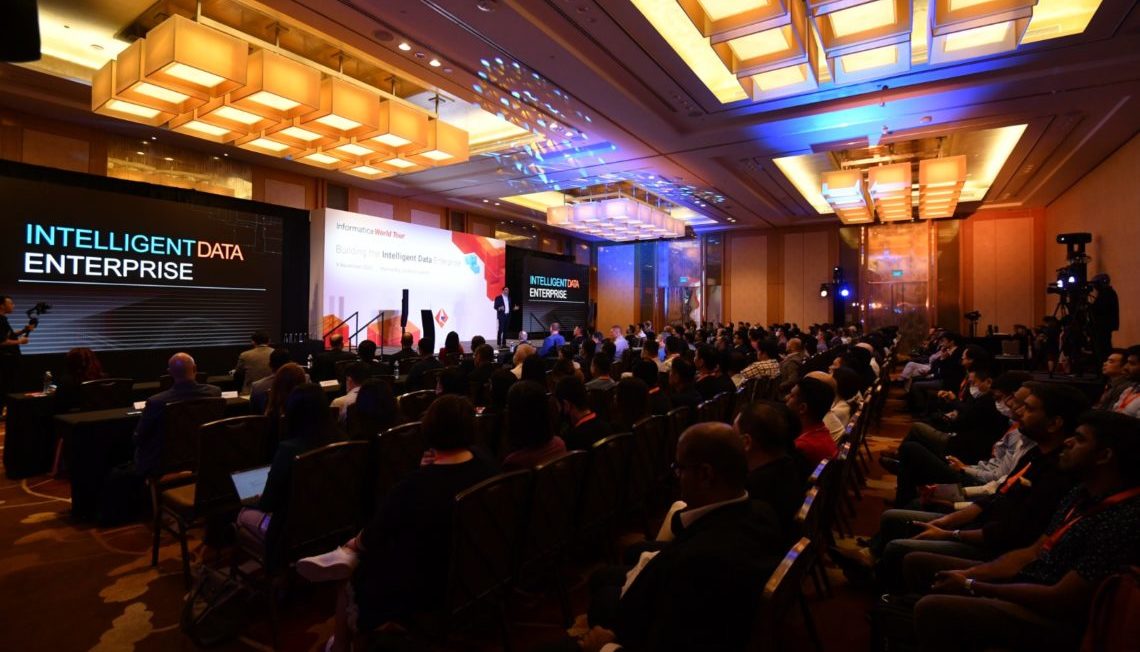“If you don’t understand your own data, you won’t know where you’re going,” said Amit Walia, Chief Executive Officer of Informatica, a leading data management software provider, at the opening of the Informatica World Tour Asia Pacific & Japan.
In Walia’s opening address, he highlighted that in the coming decade, organisations would move from digital modernisation towards digital transformation – leveraging data, which is the most powerful asset a company can have, to make meaningful decisions and improve outcomes.
Intelligent data management does not only improve business performance, it has also proven to be integral towards supporting public good, as winners of Informatica’s Customer Innovation Award showed. From enabling swift public health action to managing the complexities of smart cities, these winners demonstrate that the innovative use of data has already improved the lives of the public in countless ways.
GovInsider speaks to some of these winners from the Asia-Pacific region to learn more.

Data integration for Singapore’s swift public health actions
When it comes to public health, the consolidation of data across various public and private sources can be critical in enabling swift and decisive action. This was especially true during the Covid-19 pandemic. Lab results were consolidated, flowed through downstream systems, and made available to help keep government agencies abreast of the pandemic’s impact and take necessary public health actions.
In Singapore, healthcare technology agency, the Integrated Health Information Systems (IHiS), rapidly began developing the Covid-19 Test Repository (CTR) system, which consolidated near-real time laboratory data in a central platform. For this project, it was awarded the “Intelligent Data Strategy & Vision” award at the Informatica World Tour event.
Koh Lian Yeow, Director of Data Analytics & AI at IHiS shared with GovInsider that the system was first conceptualised in April 2020, when the country embarked on a massive testing of foreign workers staying in dormitories. Medical teams needed quick access to laboratory test results to convey Covid-positive patients to care facilities and to rollout contact tracing and quarantine measures.
In two weeks, the first lab integration was completed, and by June, IHiS had scaled up the repository to become a single source of truth for test results for the country’s entire population. Currently, there are more than 30 labs that contribute results to the repository using Informatica’s data ingestion pipeline.
The repository has also been critical in facilitating the safe re-opening of Singapore’s borders through the testing of travellers upon arrival and departure, as well as of frontline workers, shared Koh.
In addition, the repository leverages Informatica solutions to share trusted data such as Covid-19 test results within minutes to downstream and relevant stakeholders, said Koh. For instance, these results are displayed on Singapore’s digital health app, HealthHub, allowing individuals to be quickly updated on their test outcomes.
A 360-degree view to manage Jakarta’s smart city applications
Data integration has also been critical in helping cities provide better services to citizens. When data from different government agencies is integrated, agencies can draw richer insights, and in turn, provide more accurate and timely services.
One such agency that has pursued an intelligent data management strategy is the Provincial Government of the Special Capital Region of Jakarta (PEMDA DKI), which won the “Intelligent MDM & 360 Applications” award by Informatica.
Einst R. Damahatko, Head of Research and Data Analytics at Jakarta Smart City told GovInsider that combining and integrating data from various sources has enriched data analysis and powered key citizen services applications, such as the city’s super app, Jakarta Kini (JAKI).
“Data management at Jakarta Smart City helps to optimise the use of data for many domains such as digital transformation, flood management, mobility, vaccination registration, citizen application complaint and the development of JAKI super app,” said Damahatko.
The JAKI super app has integrated data sources from more than 50 applications belonging to the Jakarta Provincial Government, according to the Jakarta Smart City blog. The application was critical in driving the city’s Covid-19 response, supporting nearly a million citizens connected to their citizen ID database in booking their vaccinations in minutes. This helped the city become the country’s first province to successfully achieve its vaccination target.
Integrating data from various sources also supported the super app in leveraging artificial intelligence (AI) and machine learning. Recently, JAKI integrated a flood control system that uses AI to predict potential flooding. Through analysing data derived from Internet of Things, sensors, and weather data, the app supports Jakarta Smart City in accelerating disaster responses. The system was a winner in the World Summit on the Information Society Prizes 2022 in the ICT Applications: e-Science category.
Data-driven insights
Such data-driven insights can drive a deeper understanding of organisational activities and supporting decision making for the public good. When data is consolidated and harmonised, agencies can have a better understanding of data, use such trusted data for insights and support decision making to drive innovation.
The movement towards cloud options, from multi-cloud to hybrid cloud, has led to more complex data landscapes for organisations. However, as shown by these projects, an intelligent data management strategy which provides oversight over various types of data can help unleash the power of data to drive business outcomes and public good.





